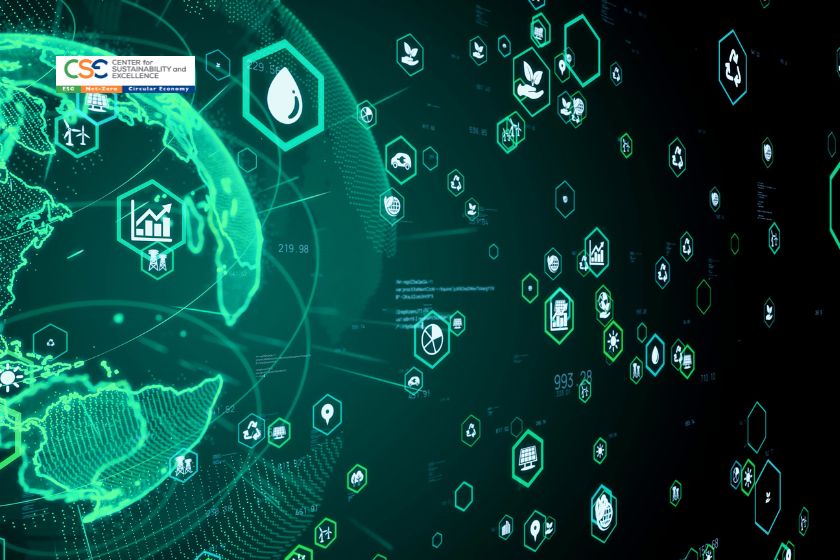Unpacking SB 253 and SB 261
California’s recent enactment of two significant climate bills, SB 253 and SB 261, is a game-changer for companies operating in the state. With California’s economy ranking globally, its climate laws have far-reaching impacts. These legislative actions, part of a broader global shift towards environmental accountability, mandate comprehensive emissions and financial risk disclosures from companies.
Many start-ups and companies focused on sustainability call California home. Now the rest must catch up! For new sustainability practitioners, this is good news. There are ground floor opportunities. For established practitioners – also good news. Leadership, management, and executive roles are expanding.
Deciphering SB 253 and SB 261: A Roadmap for Corporate Compliance
SB 253, known as the Climate Corporate Data Accountability Act (CCDAA), and SB 261, known as the Climate-Related Financial Risk Act (CRFRA), are pivotal in setting new benchmarks for corporate climate responsibility. Starting in 2026, businesses engaged in Californian markets must report their direct and indirect greenhouse gas emissions. The scope of these laws extends beyond local firms, impacting any business with Californian dealings.
While the focus of these statutes is on American corporations operating in California, they align with a worldwide trend of enacting laws that demand comprehensive climate reporting from businesses. This trend includes initiatives like the U.S. Securities and Exchange Commission’s (SEC) proposed rule for climate disclosures and the European Union’s Corporate Sustainability Reporting Directive (CSRD). California has adopted a broad strategy similar to the EU’s, necessitating climate disclosures not just from firms predominantly based or conducting the bulk of their operations within the state, but from any business engaged in commercial activities in California.
What SB 253 Expects from Businesses
The CCDAA targets large corporations, mandating the disclosure of scope 1, 2, and eventually, scope 3 emissions. This initiative will culminate in a publicly accessible digital registry, offering transparent insight into corporate emissions data. With initial reports due by 2026, businesses must prepare for independent emissions verification and potential penalties for non-compliance.
Scope and Impact of SB 253
Affecting over 5,000 businesses, SB 253 sets a financial threshold for compliance, with companies generating over $1 billion in annual revenue required to disclose their emissions data. The law also introduces a phased approach to emissions assurance, evolving from limited to reasonable assurance levels.
SB 261’s Focus on Financial Risk Reporting
Under SB 261, companies must elucidate their climate-related financial risks, adhering to the Task Force on Climate-Related Financial Disclosures (TCFD) guidelines. This act broadens the disclosure spectrum, necessitating detailed financial risk assessments biennially, starting in 2026.
Comparative Analysis of SB 253 and SB 261
While both bills drive transparency in climate impacts and financial risks, SB 261’s lower revenue threshold captures a broader range of businesses. This difference underscores the comprehensive nature of California’s climate legislation, ensuring a wide spectrum of companies contribute to climate risk mitigation.
California’s New Climate Laws: Get Your Business Ready
California’s recent enactment of SB 253 and SB 261 marks a significant shift towards environmental accountability for businesses. With stricter emissions reporting and financial risk disclosure requirements coming into effect, staying compliant is no longer optional.
This new regulatory landscape presents both challenges and opportunities. Here at CSE, we are committed to empowering businesses to navigate these changes.
How CSE Can Help:
- Compliance Guidance: Our team of experts can help you understand the intricacies of SB 253 and SB 261 and develop a comprehensive compliance strategy.
- Emissions Management: We offer solutions to assess, track, and reduce your greenhouse gas emissions, ensuring accurate reporting and minimizing potential penalties.
- Sustainability Leadership: We go beyond compliance to help you develop and implement robust sustainability programs that drive long-term value for your business.
CSE stands as a pivotal ally for companies navigating these new regulations. CSE empowers businesses to not only comply with these laws but also to advance their sustainability goals, thereby playing a crucial role in the global transition to a more accountable and financially sustainable conscious corporate world.
From construction to Silicon Valley (Workday, Netgear), CSE has developed meaningful relationships with both SMEs and large international corporations on the West Coast. We’ve provided education on Sustainability to leading companies such as Google, T-Mobile, Sandia National Laboratories, Cisco, Oracle, Chevron, Lyft and other companies based in California and Washington.
Take the Next Step:
Join our upcoming Certified Sustainability (ESG) Practitioner Program, Leadership Edition 2024, on September 26-27 & October 1st, 2024. This intensive program equips sustainability ESG professionals with the knowledge and skills to lead their organizations through the evolving regulatory landscape.
Enroll today and gain the competitive edge in California’s new climate era!








